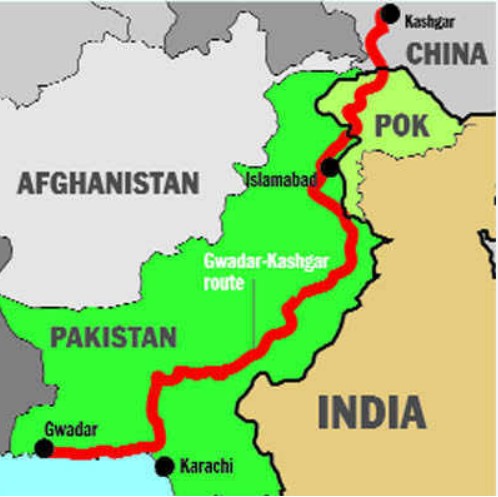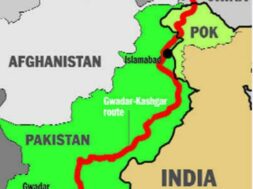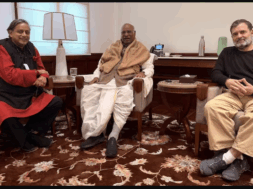
Roving Periscope: China criticizes India for not signing the SCO Summit Declaration.
Virendra Pandit
New Delhi: It happens rarely when a nation hosting a key international summit refuses to sign the document issued at the end of the event. But that’s what exactly happened on July 4 when India declined to sign the New Delhi Declaration at the end of the Shanghai Cooperation Organization (SCO) Summit held virtually on Tuesday.
At the end of the event, inaugurated virtually by Prime Minister Narendra Modi, India reiterated its opposition to the China-promoted Belt and Road Initiative (RBI), part of which passes through the Pakistan-Occupied Kashmir (POK).
Predictably, China is fuming.
The Declaration was issued on Tuesday, which said Russia, Pakistan, Kazakhstan, Kyrgyzstan, Tajikistan, and Uzbekistan reaffirmed their support for the BRI.
India, however, stood out as the only country in the SCO not supporting the highly-controversial USD 62 billion international project that culminates at Gwadar Port in Pakistan’s restive Baluchistan Province.
The Declaration said the member states considered it important to ensure the implementation of the SCO Economic Development Strategy 2030 adopted by “interested member states” and projects aimed at promoting cooperation in areas of digital economy, high technology, and modernization of existing international routes for road and rail transport, among others.
In his opening remarks at the Summit, PM Modi highlighted the need for boosting connectivity but asserted that it is essential to respect the basic principles of the SCO Charter, especially the “sovereignty and territorial integrity” of member states while making such efforts.
Those who joined the virtual SCO Summit, chaired by PM Modi, included Presidents Xi Jinping (China) and Vladimir Putin (Russia), and Pakistan Prime Minister Shehbaz Sharif, among other leaders.
On earlier occasions also, India did not endorse the BRI at the SCO while other members supported the project.
“Reaffirming their support for China’s BRI initiative, the Republic of Kazakhstan, Kyrgyz Republic, Islamic Republic of Pakistan, Russian Federation, Republic of Tajikistan, and the Republic of Uzbekistan note the ongoing work to jointly implement this project, including efforts to link the construction of the Eurasian Economic Union and BRI,” the New Delhi Declaration said.
On Afghanistan, the Declaration said the member states believed that one of the most important factors of preservation and strengthening of safety and stability within the SCO region is the “early settlement” of the situation in Afghanistan. “They advocate building Afghanistan as an independent, neutral, united, democratic, and peaceful state, free from terrorism, war, and drugs,” it said.
But China, which returned disappointed at India rejecting to sign it, is now angry. Its state-owned mouthpiece, Global Times, editorially criticized New Delhi’s stand, which exposed Beijing’s own insecurities with India’s rising economic power.
In the editorial, titled “Hope India not too silly to miss opportunities for fear of China,”, it quoted Indian media reports saying that New Delhi did not sign the SCO Economic Development Strategy for 2030 because the document “had too many Chinese catchphrases.”
The opinion piece denied that this strategic document is “dominated by China,”, adding it was initially proposed by Tajikistan with the aim of “promoting regional economic cooperation and integration, focusing on the entire region’s development.”
Although the Declaration’s details have not been disclosed, it is in line with the consensus of regional countries in the general direction and reflects the collective interests of all member states, Global Times claimed.
It is illogical for India to refuse to join simply because there are so-called “Chinese catchphrases” in the document, which inevitably brings to mind the prevalent habit among some politicians in Washington in recent years of “opposing China at every opportunity.”
“Now, some Indian politicians and elites always put their eyes on Washington, and the Indian media’s focus is also shifting accordingly. However, instead of learning the good things, they have adopted the detrimental “opposing China at every opportunity” syndrome, which has already proven to be a mistake. It is probably not a good thing for India,” the editorial said.
The opinion piece claimed that the document was a significant achievement of the SCO Summit in New Delhi and had been approved by the Heads of State Council. However, India, as the rotating chair of the SCO, became an absentee.
This makes India feel “robbed of its limelight.” which reveals the worsening “China hypersensitivity” symptoms in New Delhi, the piece said.
China said that it is understandable that “India desires to be in the spotlight,” but if it attains the position by pushing all others aside, the very essence of the centerstage will vanish.














